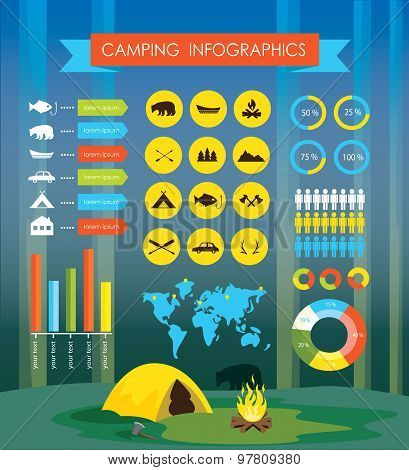Helping The others Realize The Advantages Of waterproof spray for tents
Helping The others Realize The Advantages Of waterproof spray for tents
Blog Article
Safety And Security Considerations for Family Outdoor Camping Tents
Safe and fun outdoor camping trips are possible for the entire family when every person complies with basic safety standards. Instruct youngsters to respect wild animals and all-natural things, constantly keep a first-aid package with lots of melt cream on hand, and be gotten ready for unexpected scenarios by looking into the camping area, weather condition patterns, and geographical attributes.
What is the best thing to sleep on when camping?
Pick the Right Camping Tent
Parents that camp know that the best tent can make or break a camping trip. The tent you pick need to be durable adequate to hold up against the harsh therapy that children and pet dogs can supply. It needs to additionally be easy to establish, with features like color-coded poles and quick-clip systems.
You should also consider the size and capacity of the outdoor tents you intend to acquire. Try to find a flooring location and top height that can fit the number of people in your family, plus extra space to reduce crowding or claustrophobia.
When selecting a camping site, study the location for dangers, such as animal burrows, toxic plants and rough drop-offs. It's likewise an excellent idea to choose a site that uses some form of safety and security features, such as boundary secure fencing and nightly camping area patrols.
Outdoor tents Configuration
When establishing camp, find a level location that is big sufficient to conveniently fit your tent and any other aspects you're preparing for, such as a fire pit. Eliminate any debris like sticks or stones and keep an eye out for prospective hazards, such as sloping pitches that can create you to roll about throughout the night and rainfall pools in concave areas.
If it's windy, position your tent so the side with the strongest pole framework faces the wind to decrease the possibility of it blowing via and creating injury or damages. Preferably, select a website that is also shielded by all-natural obstacles to minimize wind and rain threats. You may likewise intend to set a tarp somewhat smaller sized than your tent floor to maintain it dry.
Tent Storage
Several tents are created with vents and flaps that encourage air circulation. However, you ought to always keep combustible items like garments and sleeping bags away from these openings to avoid fire risks. Ventilation is additionally essential to decrease smoke and carbon monoxide build-up, which are significant health and wellness dangers.
Never rest directly on the ground and educate youngsters to stay clear of it. This avoids tripping and falling injuries, as well as insect attacks.
Instruct youngsters to always check for hazards prior to entering their camping tents, such as loose rocks or tree arm or legs that might fall during a tornado. It's likewise a good concept to come to the camping area prior to nightfall to make setting up camp easier and more secure. This likewise offers you a possibility to find any possible problems, like snakes or dangerous plants.
Camping tent Weather
There are couple of things extra satisfying than sitting around a campfire toasting gooey s'mores under a star-filled sky. But before you pitch your tent, ensure your family has the appropriate sleeping gear and recognizes just how to effectively use a campfire.
Tents can likewise be impacted by weather, such as rain and wind. Wind can transform the stress on the tent, loosening up ratchet settings up and drawing scout of the ground. Rain can cause tents to leak.
Seek outdoors tents that supply excellent air flow and lessen condensation (wetness that naturally creates from your body's breath). Take into consideration bringing a tarpaulin in case of rainfall. And constantly leave your outdoor tents if there are lightning strikes close by.
Camping tent Safety
Tents that do not abide by fire and life safety demands are a fire risk. Moreover, storing combustible materials like wood, gas cylinders, and lp within the camping tent can cause them to overheat or perhaps blow up. To decrease these risks, they need to be kept outside the tent sheltered by a sturdy tarp.
Fire hazards additionally develop from incorrect usage and storage space of stoves. Stoves that in tents aren't effectively aired vent can release carbon monoxide, a lethal harmful gas.
Outdoor tents tethers and risks can produce trip risks in sidewalks and paths. To lower these risks, event planners need to take into consideration making use of visible weights on tethers, mounting secure cleats, or utilizing security cones around stake lines. Additionally, they must ensure that exits are not obstructed by furnishings, outdoor tents walls, or various other structures.
How Much Does a bell tent weigh?
